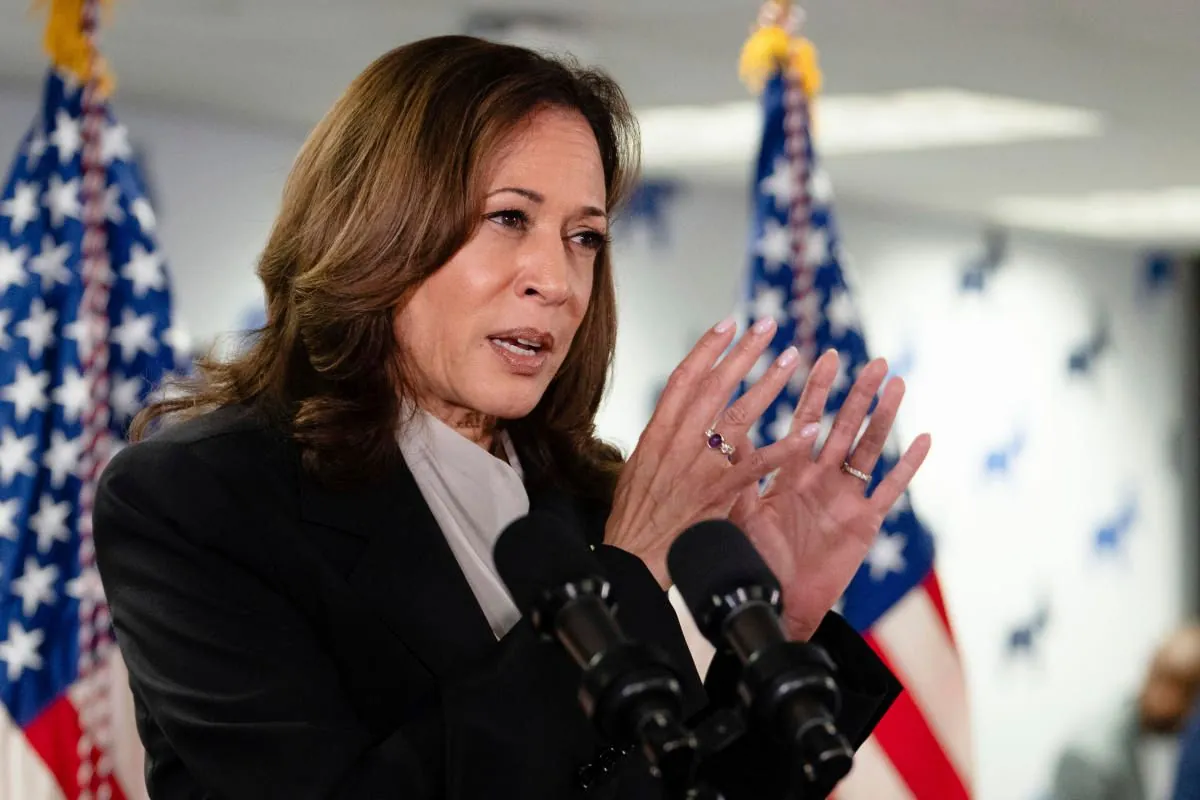Kamala Harris has secured the Democratic Party's nomination for the 2024 U.S. presidential election, marking a significant milestone in her political career. The vice president garnered support from more than the required 1,976 delegates, positioning her as the party's frontrunner for the upcoming election in November.
Harris's campaign has gained momentum following President Biden's decision to suspend his reelection bid. In a remarkable display of financial support, the campaign received over $100 million in donations within a 24-hour period. This influx of funds underscores the growing enthusiasm for Harris's candidacy.
During a campaign event in Delaware, Harris addressed the current political climate, describing it as a "roller coaster" situation. She took the opportunity to criticize her potential opponent, former President Donald Trump, drawing on her experience as a prosecutor and California's attorney general.
"I know Trump's type. I've taken on predators, cheaters, and fraudsters."
In international news, a significant development has emerged in Middle Eastern politics. Hamas and Fatah, long-standing rival Palestinian factions, have signed a unity agreement in Beijing. The deal, known as the "Beijing Declaration," aims to establish an interim government and unified leadership for Palestinians. This agreement, facilitated by China, represents a potential shift in the region's political landscape.
Meanwhile, political tensions are escalating in Uganda. Bobi Wine, the country's main opposition leader, reported that security forces raided his party's headquarters and arrested officials. This crackdown comes in response to planned anti-corruption demonstrations against President Yoweri Museveni's government, which has been in power since 1986.
In economic news, India's newly elected government, led by Prime Minister Narendra Modi, has unveiled its annual budget. The $576 billion budget prioritizes job creation and support for the middle class, allocating $24 billion over five years to address unemployment. Additionally, the budget includes measures to boost agriculture and attract foreign investment.
As the world turns its attention to the upcoming Olympic Games in Paris, organizers have revealed plans for the Olympic Village's culinary offerings. A network of six restaurants will provide diverse meal options to cater to the dietary needs of 15,000 athletes, serving over 40,000 meals daily. This culinary showcase aims to highlight French cuisine while accommodating various cultural and dietary requirements.
